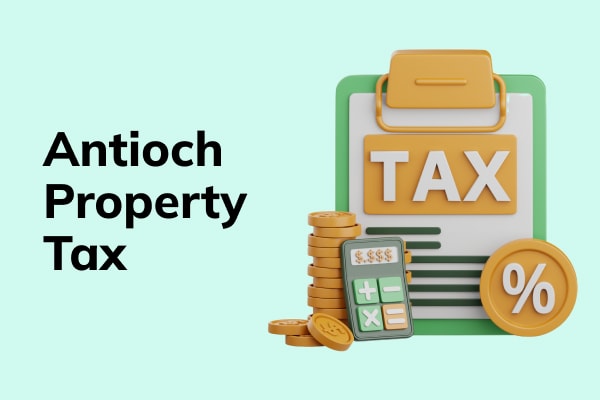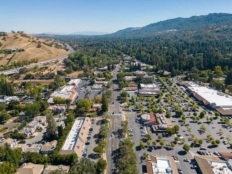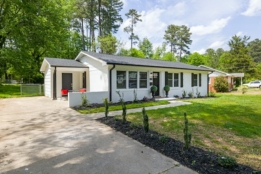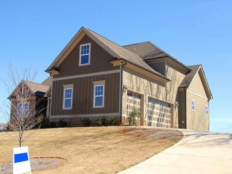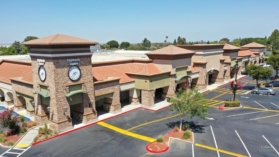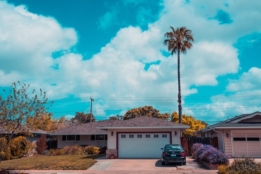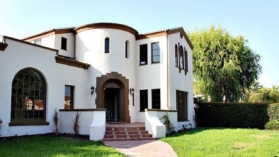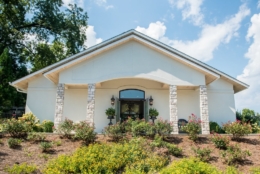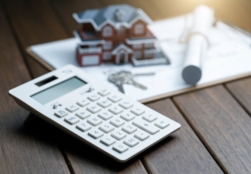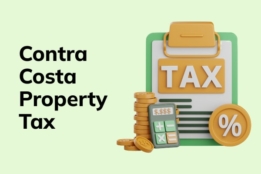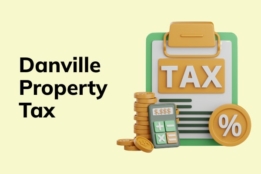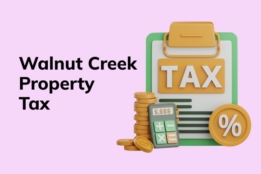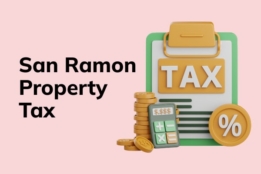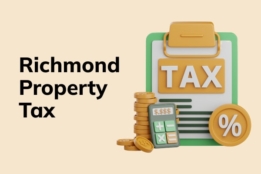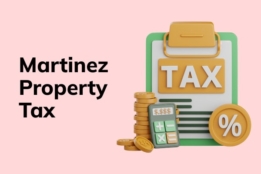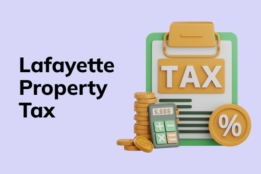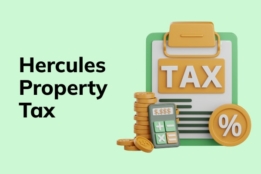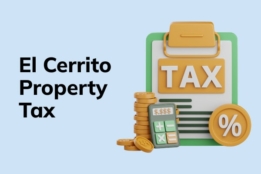Table of content
How Much Are Property Taxes In Antioch?
At present, the property tax in Antioch is 1.11%, based around the California tax rate of 1%. The property tax rate is an important consideration for any address you look at as a prospective property owner.
Antioch property tax is guided by the 1% base rate for the State of California. Actual property tax rates cannot be higher than that, unless there are special assessment amounts in place to help with funding. The amount you pay in property tax depends on the following:
- The assessed market value of the home
- The property tax rate
Fairness is paramount when government sets property tax rates. There are some ways you can reduce your tax liability – we will cover this later.
The average property tax rate in Antioch is fairly high for California. And the average rate there is lower than the average for the United States. This can be partly explained by the fact that property values are quite high in Contra Costa. With valuable properties, the property tax percentage can be quite low and still collect the necessary funds for the local needs.
Antioch property tax rates have been consistent in recent years. Real estate values have been quite stable with a slow increase, though this trend has not been as pronounced as in some other Contra Costa cities. In any case, real estate values in Antioch are strong and it is a popular place to live in California.

How To Calculate Property Taxes In Antioch?
It is quite simple to calculate the amount you will pay in Antioch property tax. The calculation is based on two important figures:
- The exact property tax rate for the address in question
- The property’s assessed market value
Once you have these figures in hand, it is a basic calculation. First, you need to divide the value of the home by 100 to get the ad valorem tax rate – 1% of its value. Next, you multiply this number by the actual tax rate for the address (which includes special assessments) – this will give you the amount of property tax that would be owed in a single year. This number is not going to remain the same year after year, but it is what the tax would be for the current year.
As you can see from this calculation, the property’s assessed market value is fundamental to everything. This is usually based on the most recent sale price of the property. You will want to have a current and accurate market value to ensure you pay the correct amount of tax.
When property appraisals are carried out for tax purposes, the main variables are as follows:
- The type of property and its unique features
- The selling price of comparable properties in the neighborhood
When the appraisal process is taking place, the assessor will evaluate these things carefully. Features that are likely to impact a property’s value include swimming pools and garages. Once the assessor has gathered all the relevant information, they will identify the fair market value using their expertise.
Let’s consider an example of this in action. A house has 3 bedrooms and an outdoor pool in the yard. Based on the property type and its features, as well as a comparison with similar properties nearby, the fair market value is set at $375,000. The property tax at the address is set at a rate of 1.11%. To calculate the property tax, the process is as follows:
- Divide the value of the property by 100 (375,000 ÷ 100 = 3,750)
- Multiply that answer by the current rate of property tax (3,750 x 1.11 = 4.162.5)
- You would pay an annual property tax of $4,162.50
How To Pay Your Antioch Property Taxes?
Property owners in Antioch are responsible for paying their property tax bill in a timely manner. You even have to take responsibility for receipt of your bill. In other words, not receiving your bill is not an excuse for not paying it. If it doesn’t arrive in the mail, you must seek out your property tax bill. You can contact the tax office to enquire or look it up online.
In Antioch, it is the Contra Costa Treasurer-Tax Collector that property tax is paid to. If you want to make your payment in person, you must attend the Finance Building in Martinez, CA. Walk-ins are accepted here between 08:00 and 17:00 on weekdays. This will not be the most convenient way for many to pay, so there are other options:
- Online payment – visit the Contra Costa online portal to make a payment. If you choose to pay by credit or debit card, there will be a service fee to pay. You can also pay by e-check to avoid this additional charge.
- Payment by phone – when you call the tax office, you will need to follow a number of steps with the interactive voice response system. Lines are open around the clock and the same payment methods are accepted as for online payments.
- Payment by mail – the property tax bill that comes in the mail includes a return envelope. You can use this to send a check to make your payment – you will find instructions for doing this with your bill.
It is up to you which payment method you choose. The most important thing is that payment must be made by the deadline to avoid incurring penalty fees.
When you pay by credit or debit card, the service fee is 2.5% of the amount paid. The minimum charge for this is currently $3.50. If you pay by e-check and the check is rejected for any reason, the returned check fee is currently $85.
Antioch Property Tax Due Dates
Antioch property tax bills go out for delivery in October. You should receive yours in the mail at some point that month, but if you haven’t received it by November 10 then you should contact the Tax Collector’s Office to enquire about it. Bills are viewable online from October as well – to view them, you will need your Assessor’s Parcel Number (APN). There are two installments to pay your property tax – each one has its own due date and deadline:
- Your first property tax installment comes due on November 1. The deadline for payment is December 10 – miss this date and you will incur a penalty.
- Your second property tax installment comes due on February 1. Payment must be made by April 10.
- You can choose to pay both installments in full by December 10.
It is important to pay your bills by the deadlines to avoid penalty charges. If you know you will be unable to do this for any reason, you should apply for a property tax postponement at your earliest opportunity. This will defer the payment dates, but the full amount must still be paid eventually. Be advised that postponements are only available up to a point – it is first come, first served, so apply as soon as you can.
What Happens If Your Payment Is Late?
If you fail to pay one or both of your installments by the deadline, you will be charged penalty fees.
- If you miss the first deadline, the penalty is an extra 10% added to the amount owed.
- If you miss the second deadline, you will incur another 10% penalty. You will also be charged a $20 administration fee.
These penalty payments are the starting point. If you still have not paid what you owe by June 30, your address becomes tax-defaulted and an additional interest rate will be applied to the outstanding balance. The interest rate is 1.5% and it is added at the start of each month. This can continue for up to 5 years, after which additional powers apply. Your property can be repossessed and sold at auction to pay off your debt.
If late payment is a concern for you, the best solution is to pay what you owe as soon as you are able. Outstanding debts can be repaid by setting up a redemption installment plan to facilitate gradual payment of the outstanding balance. Remember, the longer you go without paying, the more your debt will grow.
How To Lower Your Tax Liability?
There are a couple of things you can explore for lowering your Antioch property tax liability. Consider the following:
- You may qualify for an exemption
- It might be possible to challenge the assessor’s appraised market value
If you want to apply for an exemption, the first step is to contact the Assessor’s Office. Exemptions are all about reducing the tax burden for select individuals or groups. For example, homeowners may be able to get homeowners exemption (more in the next section).
Other options include:
- Reassessment of value
- Special tax exemptions (Seniors, veterans, non-profits, Proposition 19)
These exemptions require you to meet very specific criteria. You will find more information at the California State Board of Equalization. If you look at the criteria and believe you qualify, you can request an application form. The assessor will make the decision as to whether or not you are awarded the exemption.
The other avenue for reducing the amount you owe in tax is challenging the appraised market value. You set this in motion by talking to the assessor and requesting a review. They will take another look at the current value and weigh it against the current market value – the formal name for this in a Proposition 8 Review. If you still don’t feel satisfied, there is a 60-day window to appeal against it. This must be done between July 2 and November 30.

What Is Homeowners Property Tax Exemption?
The Antioch homeowners property tax exemption is another thing you can consider to try and lower the amount you owe in property tax. It is accessible to people who own and live in a property in Antioch as their primary residence. Essentially, it takes some money off the total value of your property for tax purposes – it can reduce it by up to $7,000 or take $70 off your tax bill.
As this exemption is aimed at owner-occupiers, it doesn’t apply to landlords in Antioch. When you move into a new home you have purchased, you will usually receive the paperwork automatically. You can also request an application form later on.
Frequently Asked Questions
How Much Are Property Taxes In Antioch?
Though the exact rate varies, the Contra Costa property tax rate is 1% and special assessment amounts sometimes make it higher. The average property tax rate in Antioch is currently 1.11%.
How To Pay Your Antioch Property Taxes
You can make property taxes by cash, credit/debit card, check or several other methods. This can be done in person, online, over the phone or by mail.
What Happens If Your Payment Is Late?
If you miss a deadline for a property tax payment, you will have to pay a penalty of 10%. There are also administrative fees and more severe penalties come into play if your tax remains unpaid beyond June 30.
